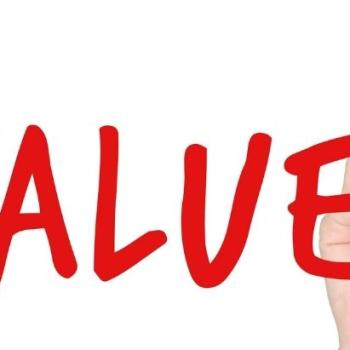
I have always considered myself a freethinker, an independent spirit of sorts. Over the years, I have been attracted to many ideas and teachers but I have never been able to bend the knee and blindly follow.
The question, why would people surrender independence, delegate thinking, or act without proper investigation, has always haunted me. I could never quite grasp the idea… until I read Huston Smith.
Seekers, Leaders, and Followers
In his classic, The World’s Religions, Smith explored three groups in relation to religion.
Firstly, Smith wrote of seekers. Seekers want the truth, he said. That is their primary concern. They search, contemplate, debate, research, and experiment, all in order to get to the truth. I can relate to that as my primary method of operation.
Secondly, Smith wrote about leaders. According to him, leaders want power. Good leaders wield their power to serve, while bad leaders abuse power, often by swindling and manipulating those who trust them for personal gain—nothing new about that.
Third, Smith spoke of followers. And what do followers want according to him? They want… wait for it… freedom!
What?!
I almost fell out of my chair when I read that statement. How can followers want freedom? Isn’t freedom the very antithesis of following?
Freedom From, Not Freedom To
Smith went on to explain. Followers want freedom from, not freedom to.
At work, they want their evenings and weekends to be free from worry about the company they work for. In exchange for following the boss, they get the freedom to control their time off.
In politics, they want a strong leader who can make decisions for them, giving them freedom from thinking, worrying, and making hard choices on a continual basis.
In relation to diet and exercise, they want freedom from having to think about their own health and want detailed lists of do’s and don’ts.
And in religion, they want a secure and often a strict theology (similar to the dietary do’s and don’ts), freedom from difficult theological contemplation, and to be unburdened by spiritual paradoxes, of which there are many.
To be fair, a person can lead in one area of his or her life and follow in another. Smith’s definition applies to the concept in general.
Well, That Doesn’t Sound Like Freedom to Me
Absolute freedom means absolute chaos with no rules or boundaries of any kind, right? At first, what I’ve described above didn’t sound like freedom to me at all. Nevertheless, the more I’ve thought about it, the more I believe I understand where Smith was coming from when he created this definition. Followers want the perception of freedom. They want to feel free, even if they are not, because, let’s face it, most people are not as free as they think they are.
How Has This Understanding Helped Me?
Understanding this—and I hope I have done Smith’s definition justice—hasn’t changed my general disposition and made me want to become a follower, but it has helped me understand people who choose that path in life.
I get that being a follower makes life easier, even though concessions have to be made. When leaders have people’s best interests in mind, it even makes sense. Placing trust in a higher authority can make life seem less chaotic. That can, in turn, reduce both stress and fear and lead to a feeling of freedom.
While freedom may not be the only thing that followers want, Smith’s explanation has helped me appreciate those who choose to follow. I may not agree with what they are doing, but I see where they are coming from.
PostScript
Even if I have reached a new understanding, I have to admit that it still distresses me when I see followers being duped by those they have chosen to follow—when I observe fervent devotees who can’t see that their leaders don’t have their best interests at heart. It breaks my heart.
Gudjon Bergmann
Interfaith Minister, Author, and Speaker
Founder of Harmony Interfaith Initiative
Like my page on Facebook to see new articles in your feed.
Picture: CC0 License












